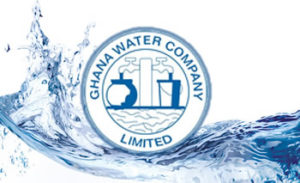Ghana Water wants 334%, and ECG 148% increases in tariffs
 The Ghana Water Company Limited (GWCL) and Electricity Company of Ghana (ECG) have proposed tariffs of 334 per cent and 148 per cent respectively, to the Public Utilities Regulatory Commission (PURC), for approval for 2022.
The Ghana Water Company Limited (GWCL) and Electricity Company of Ghana (ECG) have proposed tariffs of 334 per cent and 148 per cent respectively, to the Public Utilities Regulatory Commission (PURC), for approval for 2022.
The proposal from GWCL and ECG were the highest among the tariffs presented to PURC by utility service providers for consideration ahead of the July tariff announcement.
The Northern Electricity Distribution Company (NEDCo) asked for a 113 per cent tariff increment; Ghana Grid Company Limited (GRIDCo), 48 per cent, and the Volta River Authority (VRA), 37 per cent.
The Utilities said the proposed increment is to enable them recover their investments, expand their operational capacity, sustain their operations, and offer quality and affordable electricity and water to both household and industrial consumers in the country.
They cited an increase in their operational cost, exchange rate, high inflation and depreciation of the local currency (Cedi) against its major trading currencies (Dollar and Pounds sterling) as the reasons for their tariff proposal.
The proposals were made at a consultative stakeholder meeting with policy Think Tanks, players in academia, Civil Society Organisations (CSOs), and the media for the multi-year major tariff review (2022-2027) conveyed by PURC in Accra on Thursday.
Speaking to the Ghana News Agency on the sidelines of the meeting, Nana Yaa Jantuah, a consumer, and former Executive Secretary of PURC, noted that economic indicators necessitated the proposals.
She said: “It is not their fault because the economic indicators as it stands, which determines the tariff goes are a bit rough and not palatable. The price of crude oil on the world market and other contingent parameters are not too good for us.
In 2016, the exchange rate that was used for the tariff determination was about 4.1 per cent but today it’s about 7.8 per cent; exchange rate, had increased from 7.09 per cent to 7.8 per cent, and inflation increased from 6.93 per cent to 19.4 per cent.”
She said: “They are looking at the forex loss, eight per cent rate of return, reduction in tariff in 2019 and whatever that the Government has taken from them and has not paid which have contributed to the upward proposal by the service providers.”
She however said that there was the need to critically analyse the proposals and evaluate and see if consumers would be able to pay, in addition to considering that commiseration of quality of service with what they were requesting for.
Nana Yaa Jantuah advised the Utilities to communicate effectively with the consumers and make them understand the intricacies involved in the tariff proposals, improve upon quality of service, and collect revenues due them.
The former Executive Secretary of PURC said that the Commission must also heighten its monitoring of the Utilities, and evaluate the projects they include in their proposals, to ensure value for money.
Last month, the Institute for Energy Security (IES) – a research and energy security advocate, projected that electricity and water tariffs were likely to go up in July, when PURC was expected to announce tariff for 2022.
Nana Amoasi VIII, Energy Analyst and Executive Director of the Institute, said “from all indications, there will be an upward review of the current tariff.”
He said: “We must brace ourselves for electricity tariff increment so that we can save both the distribution and transmission grid from collapsing and have some reliable power supply.”
As part of engagements, the Public Utilities Regulatory Commission would be meeting the Association of Ghana Industries (AGI), Organised Labour, select Committee on Energy, and other stakeholders, before a public hearing on May 16.
Source: GNA
